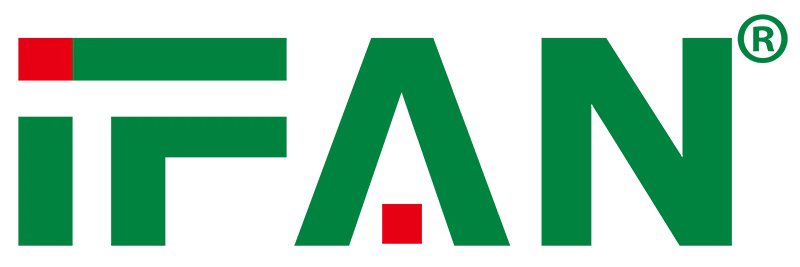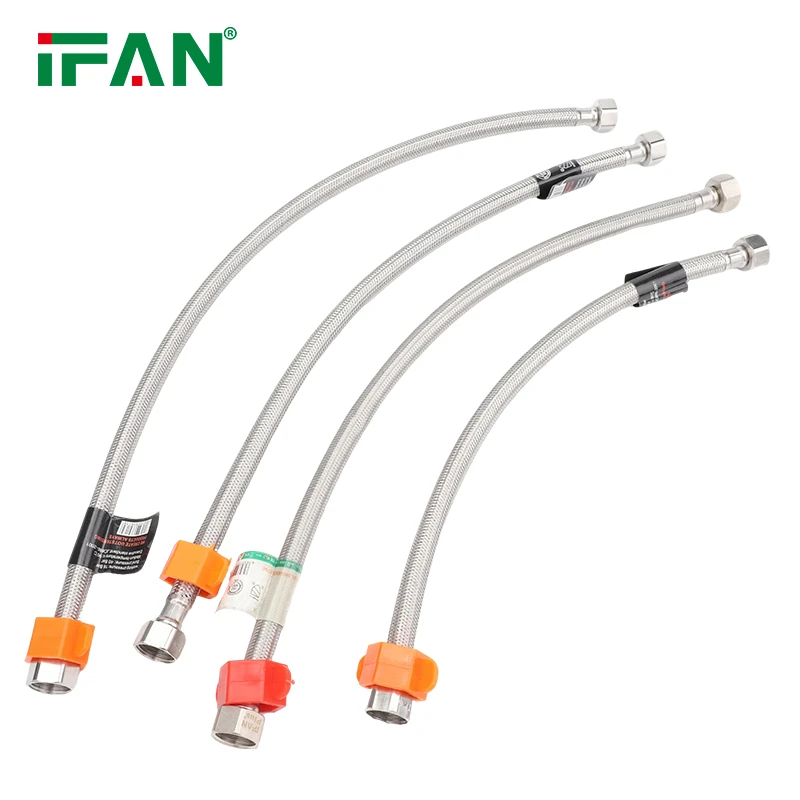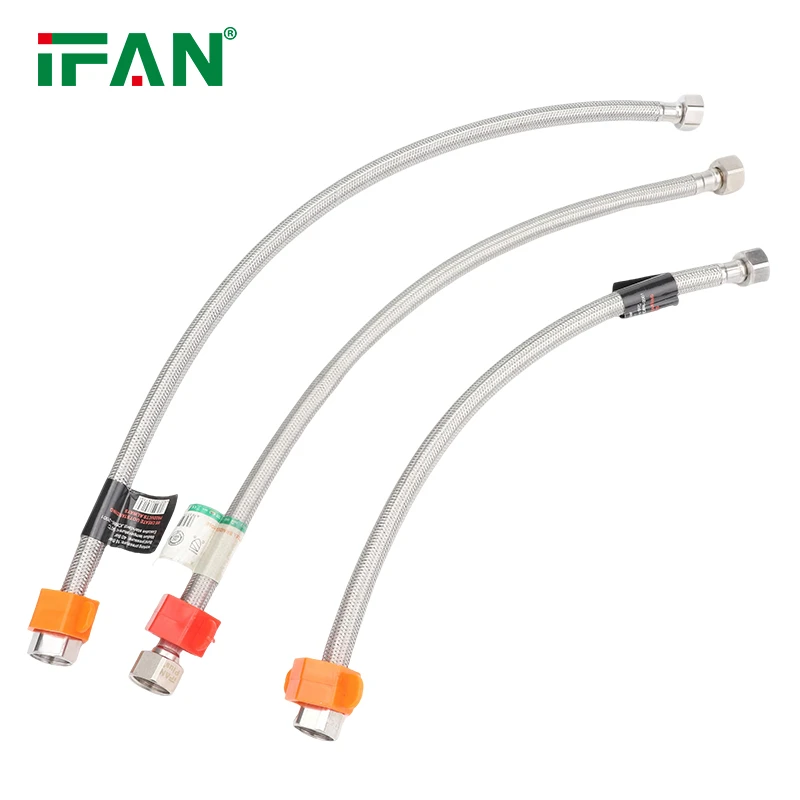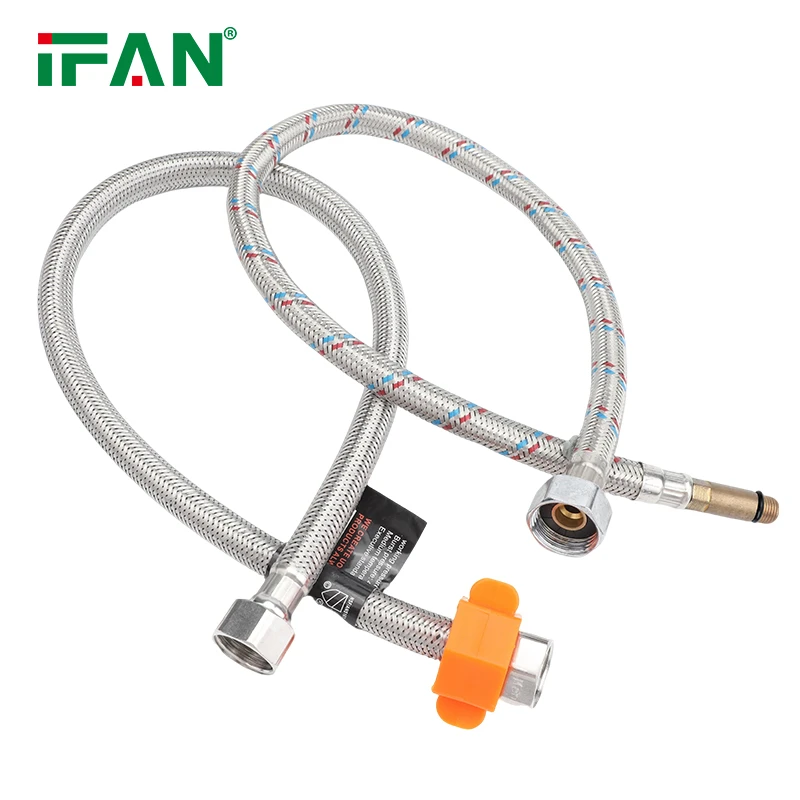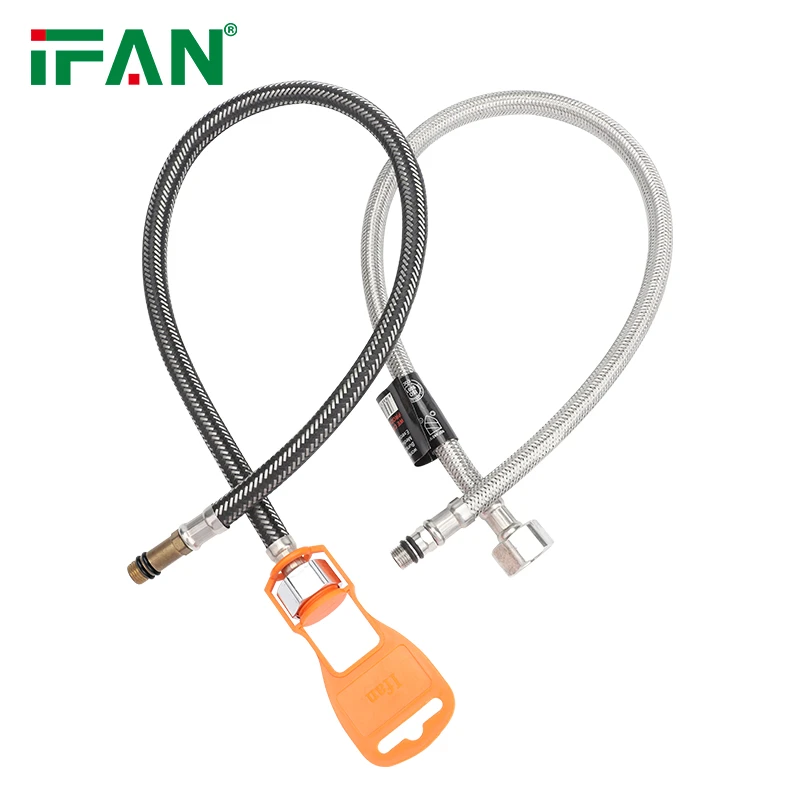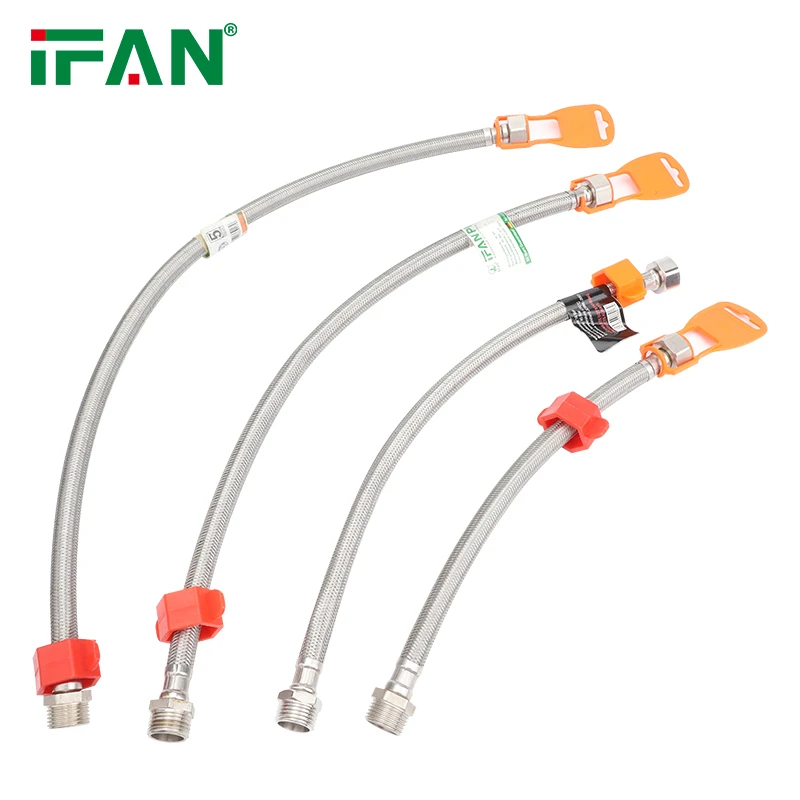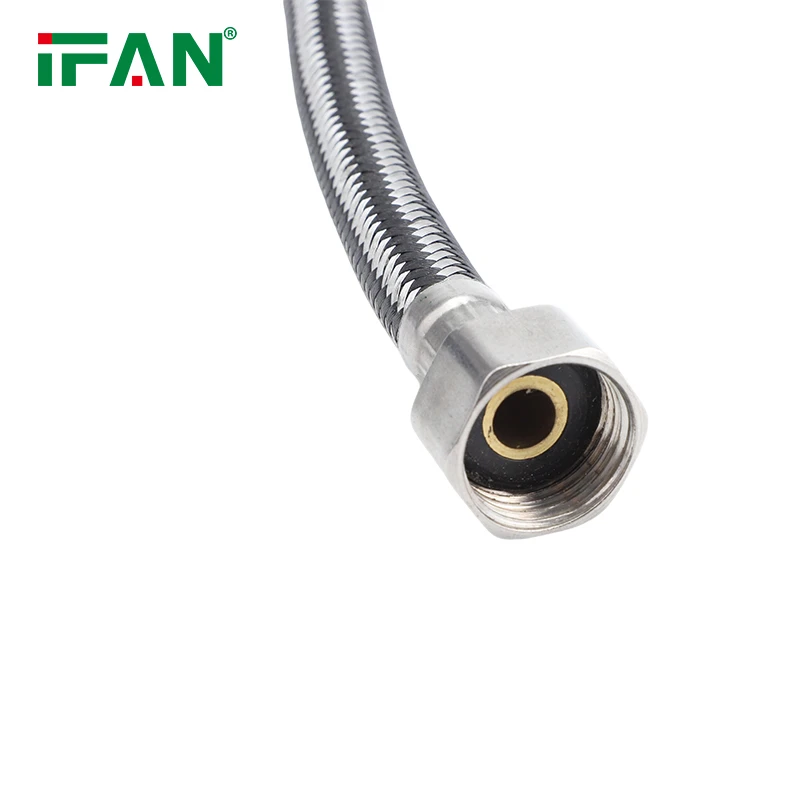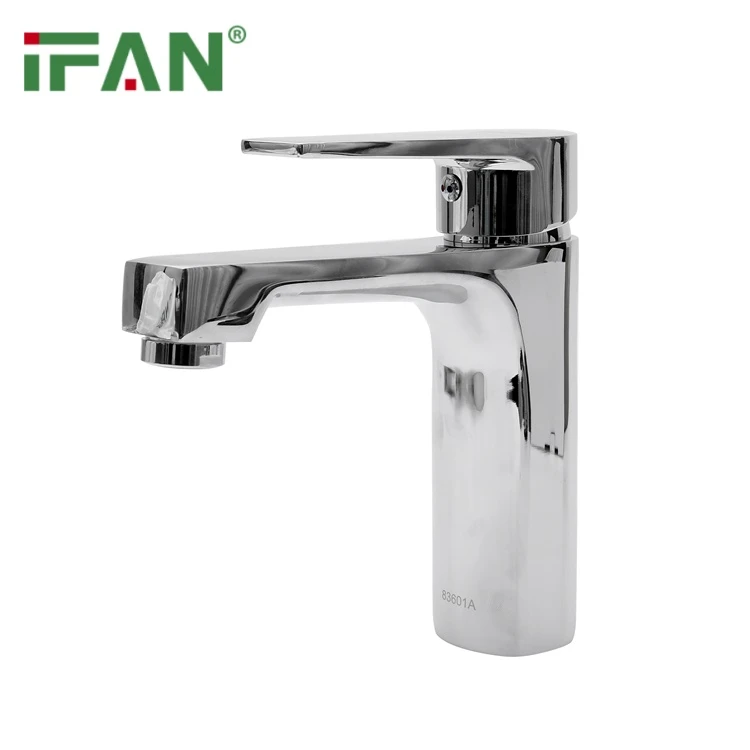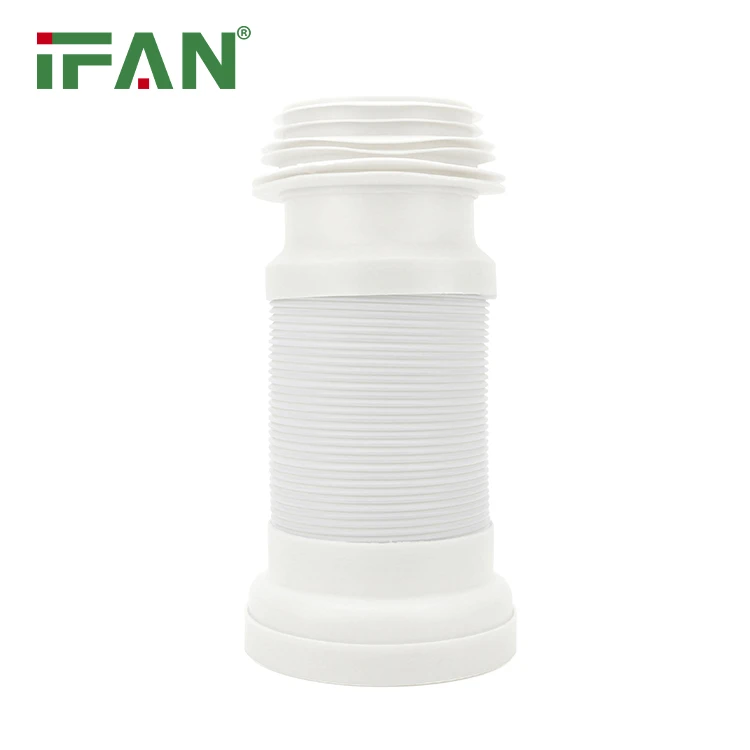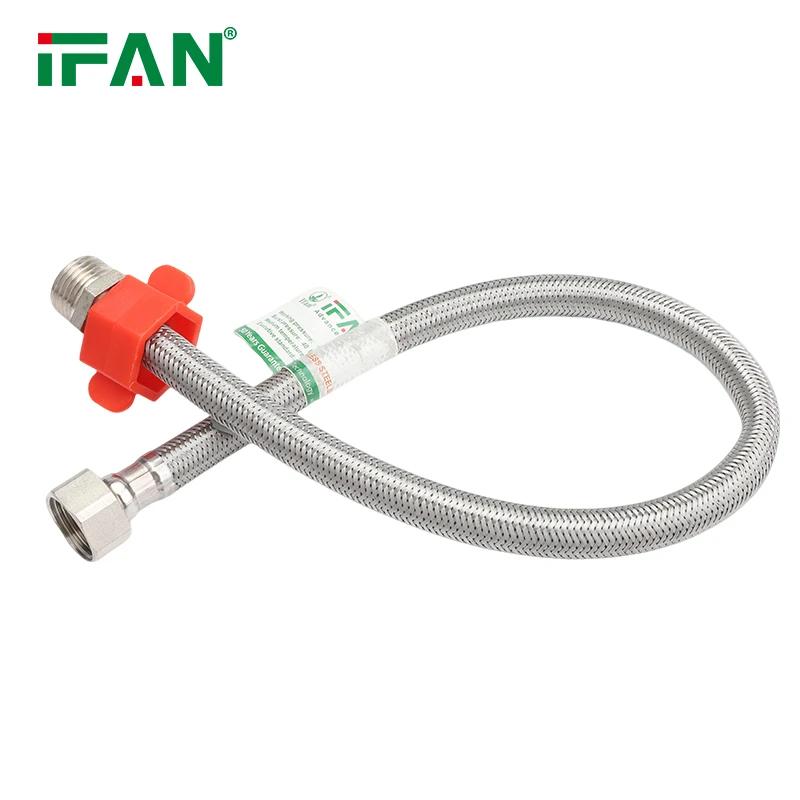Beschreibung
Complete Guide to Braided Hose Sealing Techniques
Braided hose sealing techniques, or Geflochtener Schlauch Schutz, ensure leak-free connections and protect hoses from wear in demanding applications. Proper sealing enhances durability and safety in systems handling water, chemicals, or gases. This article provides a step-by-step guide to sealing braided hoses, answers common questions, explains the basics of plumbing systems, discusses applications, and offers tips for selection and installation. Additionally, we compare metal braided hoses with other materials to highlight their advantages. Whether you’re an industry professional or a DIY enthusiast, this guide helps you achieve secure and reliable hose connections.
Frequently Asked Questions (FAQ) about Braided Hose Sealing
1. What are braided hoses?
Braided hoses are flexible pipes reinforced with an outer layer of woven metal or synthetic fibers, designed to handle high pressure and resist abrasion.
2. Why is sealing important for braided hoses?
Sealing prevents leaks, protects against contamination, and ensures the system operates safely under high pressure or in harsh environments.
3. What materials are best for sealing braided hoses?
Use fittings made of stainless steel or brass for durability, along with PTFE tape or liquid sealants for a tight, leak-free connection.
4. How often should I check the seals on braided hoses?
Inspect seals every 6–12 months or after heavy use to catch wear, corrosion, or loosening before leaks occur.
5. Can I reuse braided hoses after sealing?
Yes, if the hose and fittings are undamaged, you can disassemble, clean, and reseal them with new sealant for reuse.
Definition and Features of Plumbing Systems
Plumbing systems transport water, gas, or other fluids in buildings, including pipes, fittings, and valves that ensure safe and efficient flow. These systems must meet hygiene, pressure, and durability standards. Key features include:
- Hygienic Materials: Plumbing systems often use materials like PPR or copper, which resist bacterial growth and are safe for potable water.
- Pressure and Temperature Resistance: Systems handle pressures up to 25 bar and temperatures up to 95°C, suitable for hot and cold water.
- Easy Installation: Modern systems use push-fit or clamp connectors, eliminating the need for welding or soldering.
- Corrosion Resistance: Materials like PPR and stainless steel prevent rust and chemical degradation, extending system life.
- Eco-Friendly Design: Many plumbing components are recyclable, reducing environmental impact and supporting sustainability.
These features make plumbing systems reliable for residential, commercial, and industrial applications.
Common Uses and Industry Applications
Braided hoses find use across various industries due to their flexibility and strength. Common applications include:
- Chemical Industry: They transport acids, alkalis, or solvents, resisting corrosion from harsh chemicals.
- Pharmaceutical Industry: Braided hoses handle sterile fluids, ensuring hygiene in production processes.
- Food and Beverage Industry: They move liquids like water, milk, or oils without affecting taste or quality.
- Automotive Industry: Braided hoses serve as fuel lines or brake hoses, handling high pressures and vibrations.
- Hydraulics and Machinery: They connect hydraulic systems, accommodating movement and high-pressure fluid transfer.
Their versatility makes braided hoses essential in industries requiring reliable fluid transport.
Buying Guide for Braided Hoses
Choosing the right braided hose ensures a secure and durable system. Consider these factors when purchasing:
- Material: Select stainless steel braiding for high-pressure applications or nylon for flexibility. The inner hose should be compatible with your fluid, like PTFE for chemicals.
- Color: Braided hoses come in silver, black, or colors like blue. Darker colors often provide better UV resistance for outdoor use.
- Certifications: Look for standards like FDA for food safety or ISO for quality to ensure reliability and compliance.
- Size and Length: Measure the required diameter (e.g., 1/4 inch, 1/2 inch) and length to match your system’s specifications.
- Manufacturer: Choose trusted brands like IFAN, known for quality and a wide range of industrial solutions.
This guide helps you select braided hoses that meet your specific needs.
Installation Tips for Braided Hoses
Proper installation ensures effective sealing and long-lasting performance of braided hoses. Follow these tips:
- Clean Preparation: Inspect and clean connection points to remove dirt or debris, ensuring a tight seal.
- Apply Sealant: Use PTFE tape or liquid sealant on threaded fittings to enhance sealing and prevent leaks.
- Secure Fittings: Tighten fittings with a wrench, but avoid over-tightening to prevent damage to the hose or threads.
- Check Bends: Maintain the minimum bend radius to avoid stressing the braiding, which could weaken the seal.
- Pressure Test: After installation, perform a pressure test to confirm the seal holds under operating conditions.
- Inspect the Hose: Check the hose and fittings for damage, wear, or corrosion. Replace any compromised components before sealing.
- Prepare the Connection: Clean the hose ends and fittings with a cloth or solvent to remove grease or debris for a strong seal.
- Apply Sealing Material: Wrap PTFE tape clockwise around threaded fittings or apply a liquid sealant compatible with your fluid.
- Connect the Hose: Attach the hose to the fitting, ensuring a firm connection. Use a wrench to tighten threaded fittings to the recommended torque.
- Test the Seal: Conduct a pressure test with water or air at 1.5 times the operating pressure to verify no leaks occur.
These steps create a secure, leak-free connection for braided hoses.
Step-by-Step Braided Hose Sealing Techniques
To achieve reliable sealing for braided hoses, follow this 5-step process:
These steps ensure a secure and durable seal, protecting your system from leaks and failures.
Comparison: Metal Braided Hoses vs. Other Materials
To highlight the benefits of metal braided hoses, we compare them with other materials:
| Feature | Metal Braided Hose | Rubber Hose | Plastic Hose | Nylon Braided Hose |
|---|---|---|---|---|
| Pressure Resistance | Very High | Moderate | Low | High |
| Chemical Resistance | High | Moderate | Very High | Moderate |
| Flexibility | Moderate | Very High | High | Very High |
| Temperature Resistance | Very High | Moderate | Low | High |
| Lifespan | Over 10 Years | 5–8 Years | 3–5 Years | 8–10 Years |
| Cost | Moderate to High | Low | Very Low | Moderate |
Metal braided hoses excel in pressure and temperature resistance, making them ideal for demanding applications. Rubber hoses offer flexibility but wear faster, while plastic hoses are cost-effective but less durable. Nylon braided hoses balance flexibility and strength but fall short of metal’s longevity.
Summary
Braided hoses, or Geflochtener Schlauch Schutz, provide a reliable solution for fluid transport in high-pressure and harsh environments. By following proper sealing techniques, selecting the right materials, and ensuring careful installation, you achieve leak-free, durable connections. The comparison shows metal braided hoses outperform others in pressure and temperature resistance, making them a top choice for industrial applications. To purchase high-quality braided hoses, visit IFAN at 4525 NW 72nd Ave, Miami, FL 33166, United States, where you’ll find a wide range of reliable products tailored to your needs. IFAN ensures quality and durability for your plumbing projects.
Connect
IFAN is a Chinese manufacturer of plastic pipes, fittings, and valves with 30 years of experience. If you are interested in IFAN copper fittings, copper valves, plastic pipes, and fittings, please contact us. IFAN offers a variety of standard pipes to meet your specific needs. Click below to learn more about IFAN’s wide range of affordable and cost-effective valve products and piping system-related products.
We will reply to your email or fax within 24 hours. You can call us at any time if you have any questions about our production.
Dies ist unsere WhatsApp: +86 152 1588 7738
